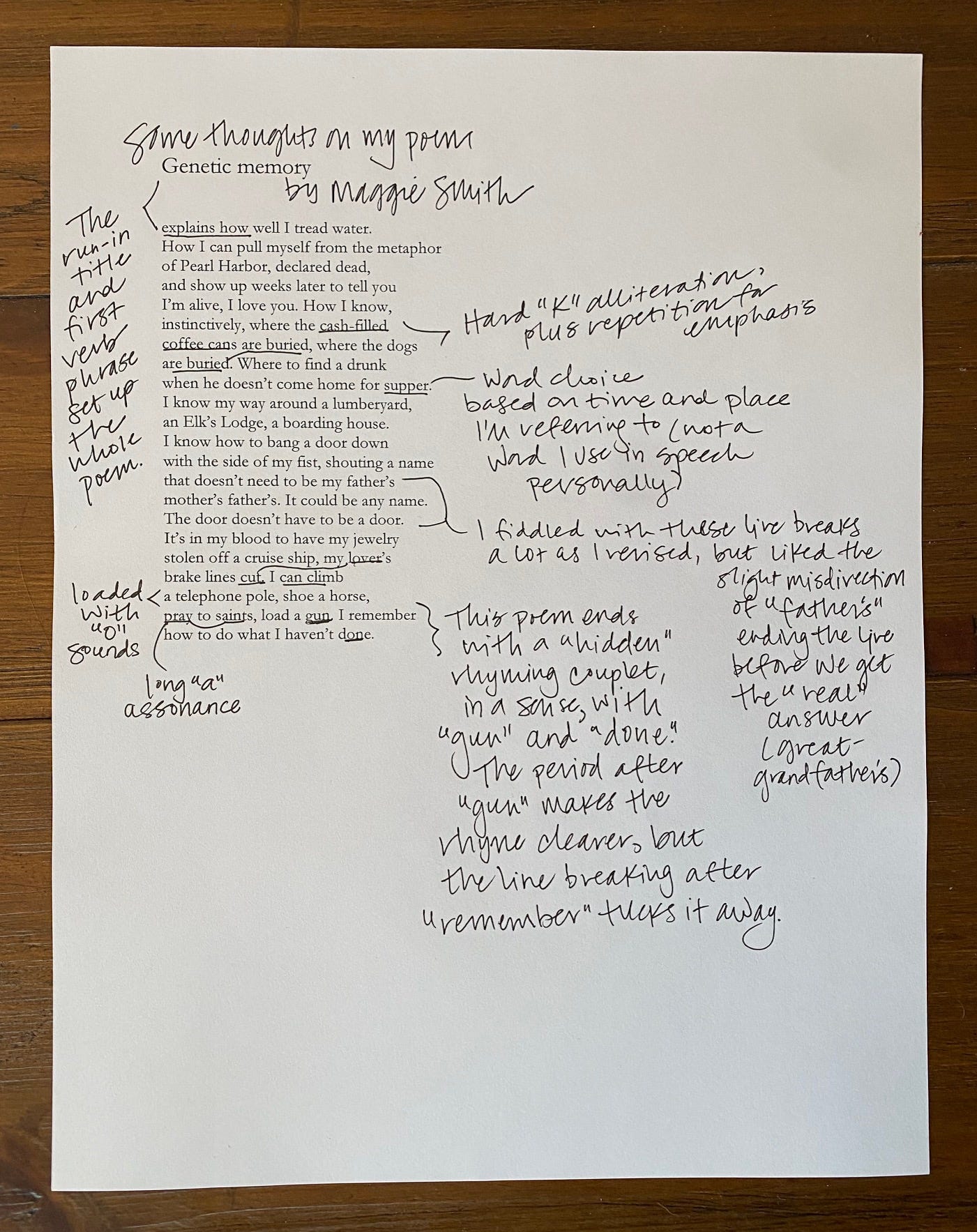Hi, Friend.
One of the questions I’m asked most often is about how to land a poem. How do you close a poem in a way that feels satisfying but not too tidy? How do you know when you get there? As promised, today I’m sharing an exit strategy you might want to try in one of your own poems: In a free-verse poem, experiment with rhyme in the closing.
There’s a surprise—a charge—when a reader finds with their eye and ear a perfect rhyme at the end of an unrhymed poem. And there’s something about rhyme that “sews up” a poem and can make that last moment feel confident and grounded.
For example, “A Suit or a Suitcase” is a free-verse poem, no rhyme to be found, but the final stanza is a rhyming couplet:
I’m trying to tell you what I’ll miss—
everything but cruelty, but mostly this.
“Genetic memory” is similar in that the last two sentences rhyme, but the lines are broken so that the rhyme is tucked inside.
I can climb
a telephone pole, shoe a horse,
pray to saints, load a gun. I remember
how to do what I haven’t done.
The gun/done rhyme is internal rhyme, but the period after gun creates a pause before the final sentence begins, so it sounds like end rhyme when you read it aloud.
You can also experiment with rhyme—end or internal, perfect or slant—at other moments you want to emphasize in a poem. The power of a free-verse poem is in making and breaking the reader’s expectations, so think carefully about where and how you break them.
Happy writing—
Maggie





A beautiful poem Maggie. I love how you break it down. Words do *italics matter. ❤️
I love these craft tips Maggie, I’ve been writing poetry everyday and they’re so helpful 💗